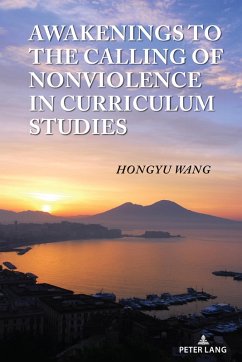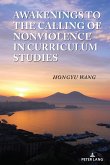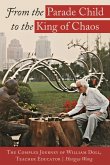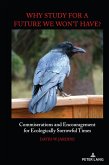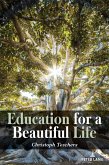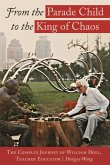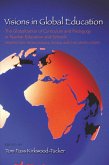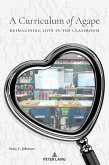In curriculum studies, we pay critical attention to violence in various forms; why not to nonviolence? This original and inspirational book foregrounds nonviolence as a positive force in education through multidimensional, complex, and interdisciplinary lenses. Starlight for shifting relational dynamics in a time of darkness and crises to co-create mutual-flourishing pathways, nonviolence not only has an inherent capacity to treat the roots of violence but is also built on a deeply shared sense of interconnectedness that fosters individual and communal integration. "Nonviolence or nonexistence" is an urgent call.
This book (with writings that span a decade) conceptualizes nonviolence education through multilayered, evolving, and cross-disciplinary perspectives, centering on nonviolent relationality that engages with differences within the self and with the other (including the non-human other) to bridge inner work and outer work, transcend dualism and divisions, and transform pedagogy and curriculum dynamics. Drawing upon international and indigenous wisdom, Gandhi-King philosophies of nonviolent social change, theories of the human psyche and currere, post-structural theories, and feminism, this book explicates nonviolence as curriculum and educational renewal in an ongoing process, infused by attuned, improvised, creative, and integrative energy that holds tensions, cultivates compassion, and inspires awakenings.
Scholars, students, and practitioners in the fields of curriculum studies, nonviolence studies, peace education, teaching and learning, educational foundations, philosophy of education, international education, East/West inquiry, and community based education will welcome this book.
This book (with writings that span a decade) conceptualizes nonviolence education through multilayered, evolving, and cross-disciplinary perspectives, centering on nonviolent relationality that engages with differences within the self and with the other (including the non-human other) to bridge inner work and outer work, transcend dualism and divisions, and transform pedagogy and curriculum dynamics. Drawing upon international and indigenous wisdom, Gandhi-King philosophies of nonviolent social change, theories of the human psyche and currere, post-structural theories, and feminism, this book explicates nonviolence as curriculum and educational renewal in an ongoing process, infused by attuned, improvised, creative, and integrative energy that holds tensions, cultivates compassion, and inspires awakenings.
Scholars, students, and practitioners in the fields of curriculum studies, nonviolence studies, peace education, teaching and learning, educational foundations, philosophy of education, international education, East/West inquiry, and community based education will welcome this book.
Dieser Download kann aus rechtlichen Gründen nur mit Rechnungsadresse in A, D ausgeliefert werden.
Hongyu Wang's remarkable Awakenings to the Calling of Nonviolence in Curriculum Studies both assembles and expands upon her decades-long, boundless examinations of complexities and potentialities of nonviolence as an "everyday practice of education." Analyzing complex entanglings of divergent theoretical, cultural, historical and social perspectives, Wang consistently incorporates iterations of difference within the ongoing processes of creating, re-forming and renewing nonviolent relationships with self, other, the earth. Acknowledging nonviolence as a personal calling, one that daily illuminates her cross-cultural pathways, Wang invites her readers to co-travel, to "dream forward" with her as means of enlivening the always-relational, interconnected nature of nonviolence. Via that very invitation, she also enacts the very dynamics of curriculum as lived experience. Writing movingly through both joy and loss in her conceptualizings as well as livings of nonviolence, Hongyu Wang has made a profound contribution to the field of curriculum studies, in particular, and to education, writ large. Janet L. Miller Professor Emerita, Teachers College, Columbia University

